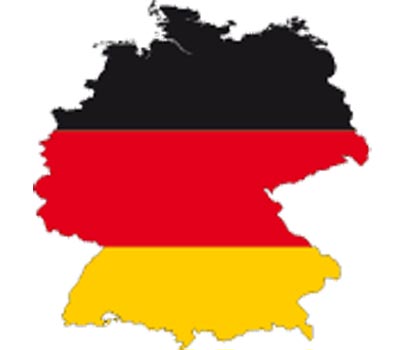German government coalition limps to September polls
 Berlin - With three months to go until Germany's general election, the lifeblood is ebbing from the country's governing coalition as its partners hope the September election ends their marriage of convenience.
Berlin - With three months to go until Germany's general election, the lifeblood is ebbing from the country's governing coalition as its partners hope the September election ends their marriage of convenience.
Parliament meets for one final session in July, before breaking up for the summer. For most, it is likely to be a short holiday as the election campaign comes into full swing ahead of the September 27 polls.
Eyeing up possible government constellations, the only option being dismissed out of hand is a renewal of the uneasy 'grand coalition' between the Chancellor Angela Merkel's Christian Democrats (CDU) and the Social Democrats (SPD).
The CDU openly favours an alliance with the Free Democrats (FDP), and the conservatives' advances have been broadly reciprocated by the liberals.
The SPD's lower rating means the party is aiming for a coalition with the Greens, a natural partner, along with the FDP who would boost numbers to achieve the required majority.
Merkel's party is clearly leading the polls, with recent surveys giving a combined 35-36 per cent of the vote to the CDU and their Bavarian sister party, the Christian Social Union (CSU).
This is largely down to the popularity of the chancellor herself, who has been praised for her handling of the financial crisis and whose moderating style of government goes down well with the German electorate.
This week's visit to Washington shows Merkel at her best, manoeuvring with ease on the world stage. She grew into the role hosting the G8 summit at Heiligendamm in 2007, and honed it during the G20 summit of leading nations in London earlier this year.
At her meeting with US President Barack Obama, their third in as many months, the US president said he was "impressed" with Germany's "foresight" on climate change, music to the ears of an electorate that is still anxious about Germany reclaiming its place in the world.
Back home, however, the CDU does not command a sufficient lead for victory in September to be within certain grasp, as an alliance with the free-market FDP would just scrape 49 per cent on current ratings.
The FDP, desperate to return to government after rejecting the SPD's overtures in 2005, is campaigning on a platform of simplified taxes, coupled with lower government subsidies.
Party leader Guido Westerwelle is critical of government bail-out schemes for German banks and carmaker Opel. However he is on good personal terms with Merkel and has expressed a desire to serve under her as foreign minister.
The SPD, still contrite after pushing through necessary but unpopular welfare reforms in the previous legislature, is flagging in opinion polls, at 22-24 per cent.
While this is an increase from the party's poor European election result early June, it still tempers the rallying cry of SPD chancellor candidate Frank-Walter Steinmeier, who sees himself as "chancellor of all Germans."
The SPD has found itself with shrinking room to manoeuvre as the CDU has drifted leftwards, emphasizing the social aspect of Germany's catchphrase "social market economy."
The former trade unionist party has failed to mobilize support with attempts to "fight for every job" as a response to the financial crisis, as this has alienated voters who believe companies must take the consequences of bad management. Meanwhile Germany's fifth major party, the Left Party, is hovering at the fringes with an estimated 9-10 per cent of the vote.
The party, composed in part of ex-communists from former East Germany, is considered a touch too radical to enter national government.
This is despite the fact that the Left Party has been a successful coalition partner at the state level, notably in partnership with the SPD in the state of Berlin.
While nobody wants to see a return to the grand coalition, this may be the only option if neither CDU or SPD can gain a sufficient lead on September 27. (dpa)